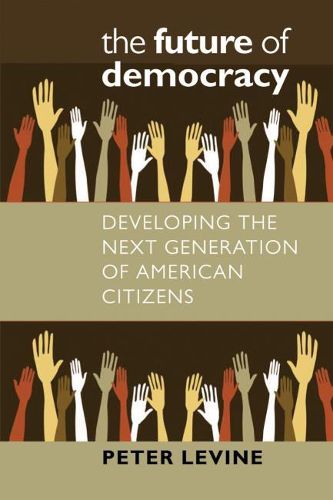Readings Newsletter
Become a Readings Member to make your shopping experience even easier.
Sign in or sign up for free!
You’re not far away from qualifying for FREE standard shipping within Australia
You’ve qualified for FREE standard shipping within Australia
The cart is loading…






We need young people to be civically engaged in order to define and address public problems. Their participation is important for democracy, for institutions such as schools, and for young people themselves, who are more likely to succeed in life if they are engaged in their communities. In The Future of Democracy, Peter Levine, scholar and practitioner, sounds the alarm: in recent years, young Americans have become dangerously less engaged. They are tolerant, patriotic, and idealistic, and some have invented such novel and impressive forms of civic engagement, as blogs, buycott movements, and transnational youth networks. But most lack the skills and opportunities they need to participate in politics or address public problems. Levine’s timely manifesto clearly explains the causes, symptoms, and repercussions of this damaging trend, and, most importantly, the means whereby America can confront and reverse it.
Levine demonstrates how to change young people’s civic attitudes, skills, and knowledge and, equally importantly, to reform our institutions so that civic engagement is rewarding and effective. We must both prepare citizens for politics and improve politics for citizens.
$9.00 standard shipping within Australia
FREE standard shipping within Australia for orders over $100.00
Express & International shipping calculated at checkout
Stock availability can be subject to change without notice. We recommend calling the shop or contacting our online team to check availability of low stock items. Please see our Shopping Online page for more details.
We need young people to be civically engaged in order to define and address public problems. Their participation is important for democracy, for institutions such as schools, and for young people themselves, who are more likely to succeed in life if they are engaged in their communities. In The Future of Democracy, Peter Levine, scholar and practitioner, sounds the alarm: in recent years, young Americans have become dangerously less engaged. They are tolerant, patriotic, and idealistic, and some have invented such novel and impressive forms of civic engagement, as blogs, buycott movements, and transnational youth networks. But most lack the skills and opportunities they need to participate in politics or address public problems. Levine’s timely manifesto clearly explains the causes, symptoms, and repercussions of this damaging trend, and, most importantly, the means whereby America can confront and reverse it.
Levine demonstrates how to change young people’s civic attitudes, skills, and knowledge and, equally importantly, to reform our institutions so that civic engagement is rewarding and effective. We must both prepare citizens for politics and improve politics for citizens.